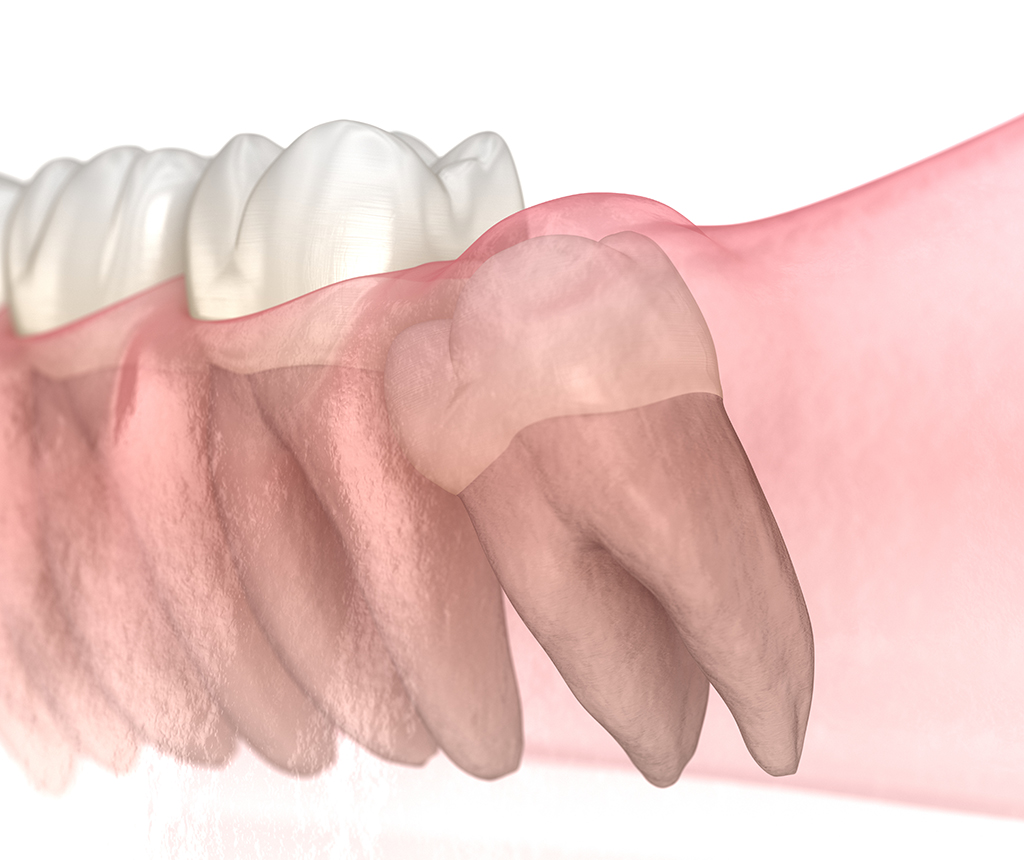
Professional Wisdom Teeth Removal | McKinney, TX
Photo By Alex Mit at Shutterstock
Wisdom teeth removal is almost a rite of passage for people in their late teens and early 20s. This third set of molars emerges around this time, an evolutionary response to people losing teeth through decry or use. While this was probably a welcome addition hundreds of years ago, today, having your wisdom teeth removed is now something that many people dread. From nightmare anecdotes about a bad experience to the general nervousness about visiting the dentist, having your wisdom teeth removed has become a medical bogeyman.
With these experiences comes a wealth of misinformation surrounding wisdom teeth removal. At NextGen OMS of McKinney, TX, we’re here to dispel many of the misconceptions people have about this procedure. If you have any specific questions, please call our team or visit us online to chat.
Ready? Here we go!
Myth: Wisdom teeth removal is done without anesthesia.
Depending on how fully formed the teeth are, having your wisdom teeth removed can be either a fairly simple process or a more in-depth oral surgery procedure. Some of our patients at NextGen OMS may come in with wisdom teeth fully formed and in place and may only require a local injection of Novacaine to have the tooth or teeth pulled. Other patients, however, including those who have had traumatic experiences with a dentist in the past or who have impacted teeth or a complication, such as an infection or a “hot extraction,” may benefit from anesthesia or sedation dentistry.
Myth: Wisdom teeth cause dry sockets.
Dry sockets refer to a very painful condition that happens right after having your wisdom teeth removed. When the tooth is removed, a blood clot forms in the empty socket, protecting the gums and jaw from pain and infection. If the blood clot is dislodged, it’s very painful and can lead to infection. Dry sockets can prolong the healing process and lead to problems down the line.
That being said, while wisdom teeth removal doesn’t always lead to dry sockets, how you take care of yourself after the process can result in dry dockets. Drinking through a straw, smoking, or other kinds of mouth movements that include suction can disrupt the blood clot or remove it entirely. You should also avoid chewing gum, which can also loosen the blood clot, and drinking alcohol, which thins the blood and can loosen the clot. Drinking alcohol and using tobacco slows the healing process in general and should be avoided.
Myth: Everyone has four wisdom teeth.
This isn’t true – in fact, about 35% of the population may not have wisdom teeth come in at all, and beyond that, not everyone has all four teeth developed. Some people may only have wisdom teeth come in in the top or bottom part of their jaw.
Myth: It’s better to have wisdom teeth removal in the summer.
This isn’t so much as a myth about the removal process itself, but rather a correlation between the schedules of people who have had their wisdom teeth removed most often. Since these teeth develop in the late teens or early 20’s and many of these people are in school, summer tends to be a more convenient time for the procedure since people won’t have to miss several class days to recover.
Myth: You’ll have health problems if you don’t have your wisdom teeth removed.
This isn’t always the case, but wisdom teeth can come in crooked, or impacted, which can lead to infection or damage to the jaw. Or, overcrowding from these extra teeth can affect the health of the rest of your teeth, making them harder to clan or causing cavities. Problems with wisdom teeth in the upper jaw can affect your sinuses, too, and most of the time, your gums can become sore and inflamed without having them removed.
Myth: You always have to have wisdom teeth removal.
These teeth evolved to replace molars that were lost through decay or damage. With modern dentistry, many people don’t lose molars, and therefore these teeth are extra. But, if you have lost teeth and not had them replaced, or if you have enough room in your mouth, then your dentist may elect to have them stay. If so, it’s important to have regular check-ups so that your dentist can monitor your mouth for overcrowding.
Myth: You can’t eat for a week after having your wisdom teeth removed.
After any oral surgery procedure, there are certain foods to avoid, such as chewy, spicy, or crunchy ones. Plus, drinking from a straw is discouraged. Your aftercare instructions from wisdom teeth removal often include a list of good foods to eat, such as room-temperature soft foods like yogurt, oatmeal, ice cream, or applesauce. Spicy foods can irritate your gums, and tougher foods like steak or chicken may be hard to chew when your mouth is still sore.
Myth: You can’t brush your teeth after having your wisdom teeth removed.
While certain kinds of oral care should be avoided, it’s important to keep your mouth clean after your wisdom teeth are removed. The sockets can get infected, and removing food debris is critical. The first few days, you’ll likely be advised to rinse with water or salt water and then resume brushing like normally afterward, taking care to keep the blood clot from becoming dislodged.
Schedule Your McKinney, TX, Wisdom Teeth Removal Procedure Today!
If you notice that you’re having symptoms of wisdom teeth coming in, such as a low-grade fever and headaches, to swollen gums, and a gum flap where the tooth is cutting through, then you should schedule a consultation with NextGen OMS of McKinney, TX. We’re a professional oral surgery team with the experience to complete any wisdom teeth removal procedure, no matter how complicated. Give us a call today to schedule your procedure or an exam to check the status of your wisdom teeth. We can also discuss sedation dentistry for our patients who are nervous about the procedure.


